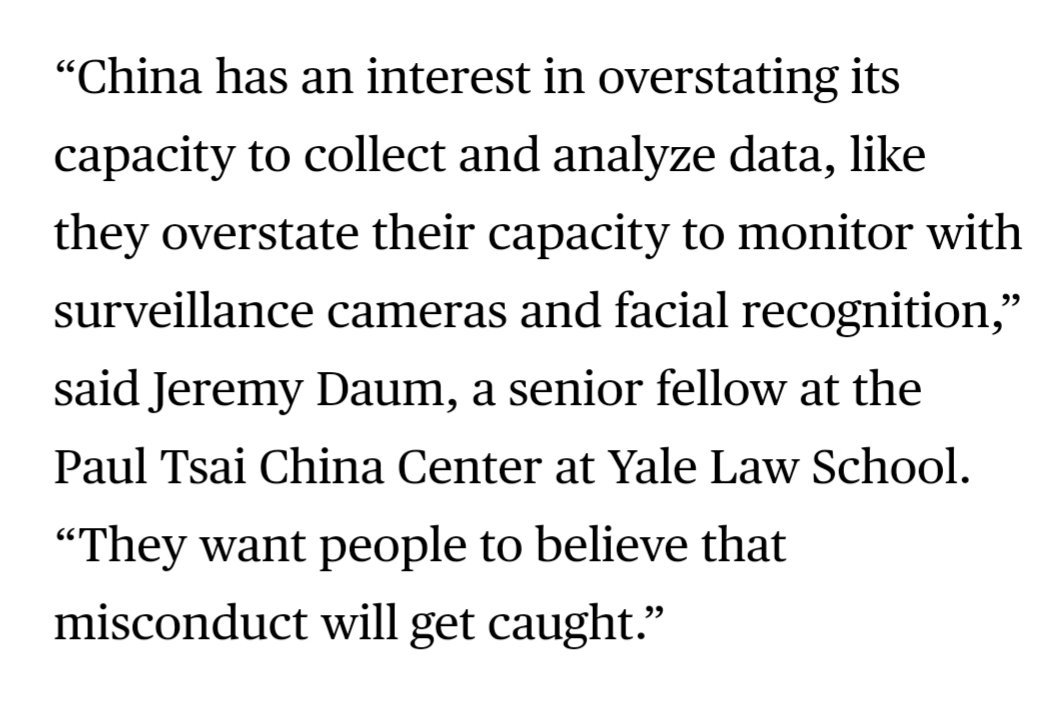In truth, it's much more like the chaotic, nonsensical oppression of a Franz Kafka story (thread):
bloomberg.com/amp/opinion/ar…
That's not because I don't think China is an oppressive authoritarian society (it is!) but because social credit doesn't really change that.
1. To my knowledge, the only non-credit behaviour that currently goes into these databases is the littering-and-parking fines stuff. "Expression of political rights" could in theory be added (this is China, after all) but that's not happening yet.
There was a great Bloomberg News piece this week looking at one of these model programs in Suzhou. It's a mess.
It seems to be racked with bureaucratic infighting, inefficiency, and caprice.
bloomberg.com/news/features/…
In general I think that's a good precaution to take to almost all public-opinion research relating to China. But in this case I think it's not that.
China is already a very oppressive authoritarian state and social credit doesn't really change that!
This one rather ineffectual program becomes a sort of synecdoche for China's entire surveillance state.
Many of the greatest frustrations of daily life in China seem to relate to its chaotic, corrupt or nonsensical nature.
It's bizarre to me that social credit, rather than this sort of thing, seems to get the lion's share of attention outside China:











